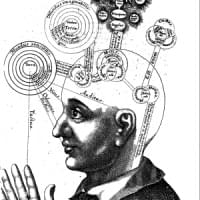In 1950, Alan Turing published a seminal paper on machine intelligence (which is available online). Turing ponders whether machines can think. However, he pretty much immediately abandons this initial question as hopelessly metaphysical and replaces it with another question that can be approached scientifically: can a machine ever convince us that it’s thinking?
Turing posits a test, a variation of something called the Imitation Game. The idea is that people interact with a system through a chat interface. (Teletypes in Turing’s day; chat windows in modern systems.) If people can’t tell whether they are talking with a machine or another person, then that machine passes the test.
Turing doesn’t stipulate a time limit for the test or any qualifications for the people participating in the conversation, although in a throwaway remark, he predicts that by the year 2000 there will exist a system that could fool 30% of participants after five minutes of conversation, a standard many have fixated on. This is a pretty weak version of the test, yet no system has managed to pass it.
